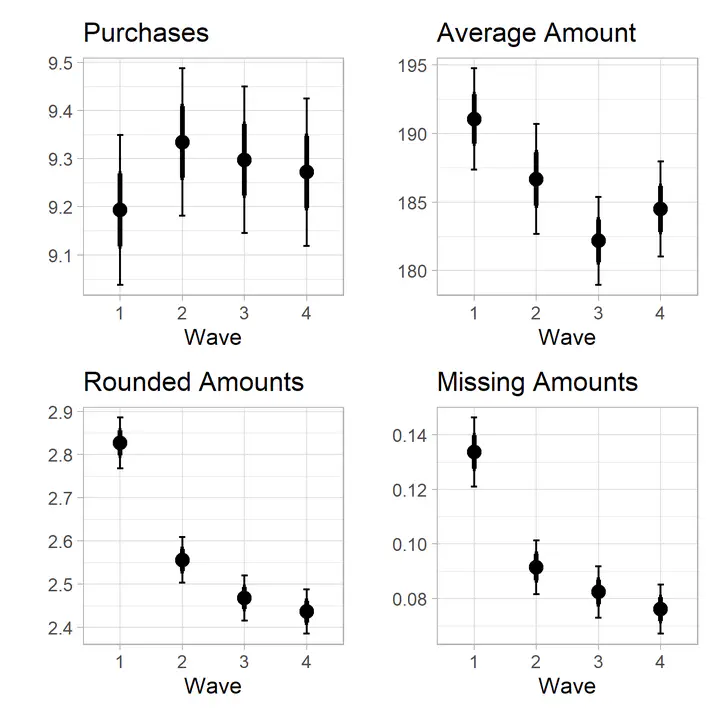
Abstract
The U.S. Consumer Expenditure Interview Survey asks many filter questions to identify the items that households purchase. Each reported purchase triggers follow-up questions about the amount spent and other details. We test the hypothesis that respondents learn how the questionnaire is structured and underreport purchases in later waves to reduce the length of the interview. We analyze data from 10,416 four-wave respondents over two years of data collection. We find no evidence of decreasing data quality over time; instead, panel respondents tend to give higher quality responses in later waves. The results also hold for a larger set of two-wave respondents.
Type
Publication
Journal of Official Statistics